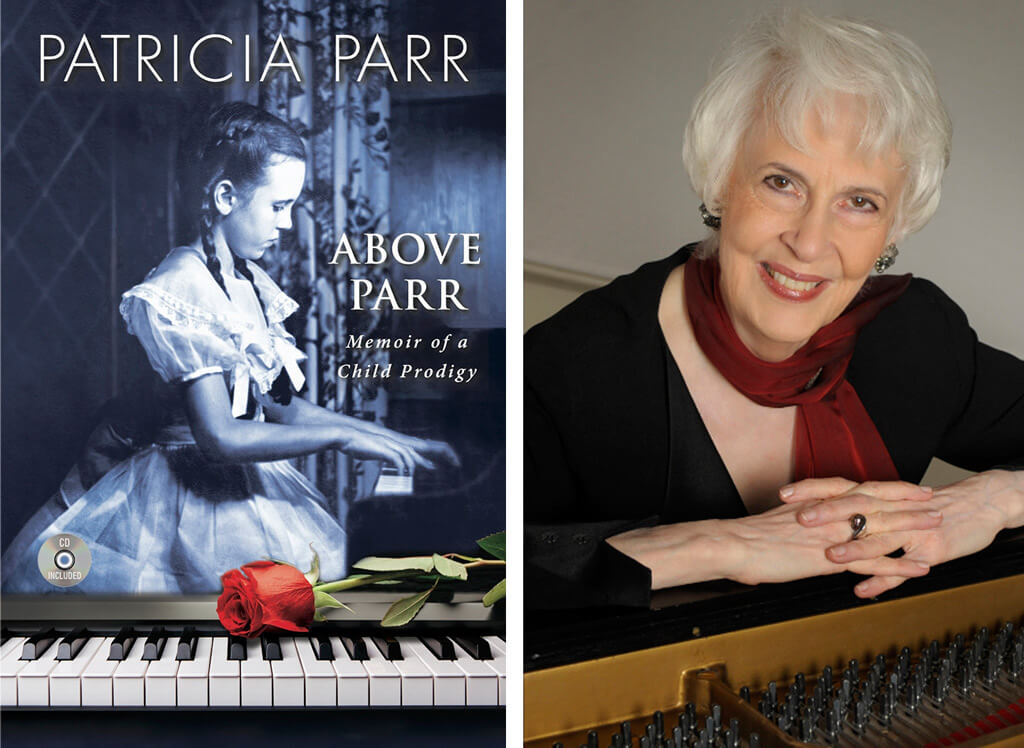
Every human being needs judicious amounts of sensitive attention in order to thrive. This is more than life enhancing; it is truly essential for emotional and physical well-being. If we’re deprived during development, the impact is negative.
An adult who has suffered an emotionally neglectful childhood can be outwardly quite successful but inwardly feel a puzzling sense of malaise. This is because neglect is an experience of absence. Unlike other forms of adversity, which leave painful memories, neglect results in a deficit, a nagging sense that something is missing. In Above Parr: Memoir of a Child Prodigy, Toronto pianist Patricia Parr struggles to convey her emotionally deprived but materially privileged upbringing despite a certain vacancy of memory that is the legacy of her childhood. The result is something like a musical composition that has more rests than notes. The silences are tantalizing, frustrating and ultimately, poignant.
“I wish so much I had vivid recollections of …my life… from the age of eight onwards… (when) I was performing as soloist with the Toronto Symphony Orchestra in Massey Hall; the Toronto Philharmonic… in Varsity Arena; the Rochester Civic Orchestra in The Eastman Theatre and the New York Philharmonic in Carnegie Hall. I […] was the youngest artist ever to be engaged with these orchestras — although for the life of me I don’t know how, or why, any of this materialized […] what as I doing? What was I feeling?”
Musical prodigies often suffer emotional neglect (as well as other kinds of mistreatment) at the hands of parents who exclusively emphasize the development of their talents at the expense of their other needs. Van Cliburn’s mother, who was his piano teacher, would begin their lessons by telling him, “You know, I’m not your mother now.” He lived with her for her entire adult life — as if he had to keep trying to get the portion of maternal love that wasn’t served in his childhood.
Rildia Bee Van Cliburn and Margaret Parr, Patricia’s mother, appear to come from the same school of parenting. Like Rildia was for her son, Margaret was also Patricia’s first teacher. She “devoted all her spare time and energy to furthering my career […] but was never one to chime in with praise.” The plaintive note of maternal insensitivity is struck over and again, with candour and palpable distress but without malice. Parr does not describe overt cruelty, but her mother’s total inability to feel or understand her emotional needs. Mrs. Parr removed her only child from school so she would have more time to practice, raised her in a neighborhood where there were no other children around, and sent her away to spend her summers with a family on Lake Simcoe.
“I have vivid recollections of […] the loneliness and homesickness palpable […] on one of my mother’s visits, choking back tears, I begged her to take me home. She couldn’t comprehend why […] and later told me how I had embarrassed her…”.
Companionship came from her Dutch houseman, Big John, on whose knee she sat to listen to radio shows and her maternal grandparents, who invited her for weekend sleepovers instead of siblings, classmates or parents. Ironically the solution to her lonely childhood was leaving home. At 14 she was accepted into the studio of Madame Isabelle Vengerova, so moved to Philadelphia to study at the Curtis Institute, where she met other adolescent prodigies like herself.
Parr’s account of her years as Vengerova’s student is an example of the reticent distance of her writing. Vengerova is a towering figure in 20th Century piano pedagogy, not only for the mastery she instilled in such eminent students as Leonard Bernstein, but for her complicated and difficult personality. Samuel Barber recalled her asking him, “Are you lazy, conceited or just stupid?” Seymour Bernstein characterized her as sadistic. Parr acknowledges her demand for “an almost inhuman degree of perfection” and describes Vengerova’s technical approach of keeping fingers close to the keys and using the weight of the forearm and a flexible wrist, but qualifies her statements about the impact of her “terror tactics”. “…It would seem that this behavior might have contributed to the performance anxiety many of her pupils experienced.” (Italics mine).
Yet it is hard not to conclude that the crippling and career-altering stage fright that struck Parr after she graduated from Curtis, was not related to Vengerova’s tyranny. “Why it happened to me, at this time, has always been a puzzle; […] I do believe that one cannot emerge unscathed from a childhood such as mine.”
It is equally plausible that the first of several autoimmune disorders that have debilitated Parr throughout her life appeared in her fourth year at Curtis as a result of accumulated extreme stress. Current biomedical research on the impact of early life adversity on adult health confirms what Parr believes — the combination of the pressure put on her precociousness, insensitive parenting, and prolonged high-intensity performance demands made her a target for a bullet she could not possibly dodge.
This makes her adult accomplishments all the more impressive. While raising two sons as a single mother she maintained a faculty position at the University of Toronto, established the Faculty Artist Series, founded and performed in Duos and Trios, including the much beloved Amici Chamber Ensemble, made extensive recordings and developed Reaching Out Through Music, a program offering musical instruction to children in low-income areas. While her investiture into the Order of Canada in 2009, with which she concludes her memoir, is impressive, it does not strike me as her culminating achievement. It is the dignified equanimity with which she looks back at all she has endured and the courageous candour with which she shares it in this book. Parr’s memoir should be on every Tiger Mother’s reading list.
For more REVIEWS, see HERE.
#LUDWIGVAN
Want more updates on Toronto-centric classical music news and reviews before anyone else finds out? Follow us on Facebook or Twitter for all the latest.



